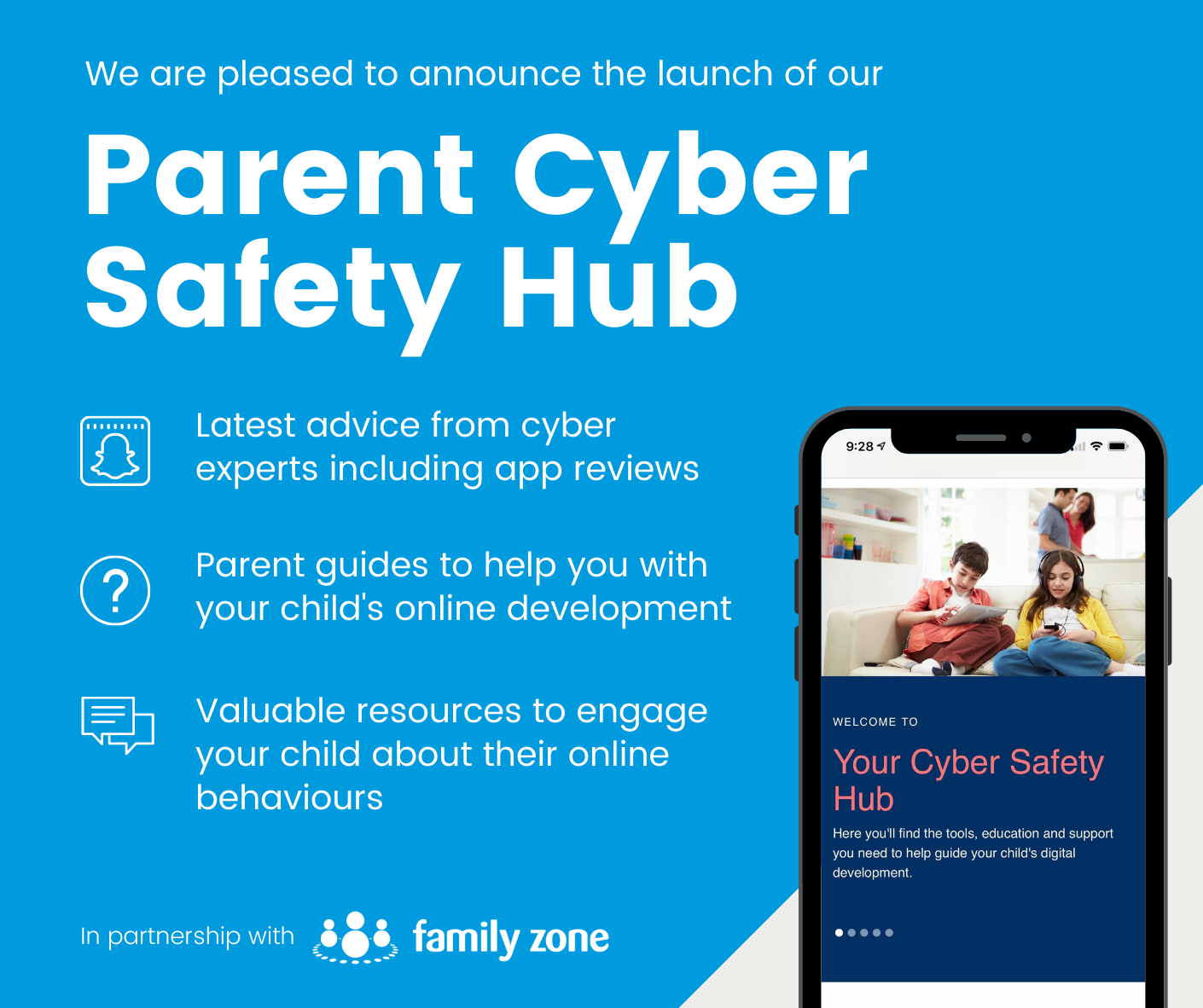Cyber Safety

Introducing our new Cyber Safety Hub
We are delighted to introduce you to a new resource made available to you through our partnership with Family Zone - our new school Cyber Safety Hub.
As you may already be aware, our partnership provides your family with access to the Family Zone tools to use at home with your children if you wish. The purpose of the Cyber Safety Hub is to complement those tools with practical guidance and information to further support you in engaging with your children in their digital development. These tools and resources also allow the school and parent body to work together on creating a holistic approach to guiding each student's online journey.
You can access the Cyber Safety Hub using the link below:
https://johnxxiii.cybersafetyhub.com.au/
About the Parent Cyber Safety Hub
The Cyber Safety Hub includes resources to help your family better understand the different Family Zone tools available to you and how to use them, plus access to regular cyber safety events to help you stay informed about the latest digital trends.
Also, the Cyber Safety Hub provides expert advice from leading cyber experts, ySafe, on the most pertinent issues and frequently asked questions around platforms like TikTok, Fortnite, Instagram, and more. There are app reviews with age and safety recommendations, along with a range of guides to help ensure healthy boundaries around screen-time & gaming, plus step-by-step instructions for using parental controls and filtering out inappropriate content.
We are very excited to be able to offer you this level of expertise and support. We look forward to working closely with you as we develop the cyber safety conversation within our school community.
Snacks and screens: Study shows overeating linked to device use in kids
Is your child a serial snacker? Excessive device use may be the culprit. A new study finds a strong link between screen habits and eating habits.
The more time kids spend on their phones, tablets or TV screens right now, the more likely they are to develop binge-eating disorders by next year.
That was the finding of a study of 11,000 9- to 11-year-olds published this month in the International Journal of Eating Disorders.
What exactly is binge-eating?
Experts define binge-eating as eating to the point of discomfort, and experiencing guilt and disgust after meals or snacks.
Does everyone do that from time to time? Of course. To meet the criteria for a clinical diagnosis of binge-eating disorder, those behaviours must occur at least once a week and persist for three months.
Contrary to popular belief, binge-eating disorder is not associated with vomiting, as in bulimia. But its effects are serious, and if untreated can lead to problems ranging from constipation and acid reflux to Type 2 diabetes.
What did the study find?
The research looked at data gathered between 2016 and 2019 as part of the US-based Adolescent Brain Cognitive Development Study.
Researchers found that each additional hour spent on social media was associated with a 62% higher risk of developing the disorder a year later.
Kids were asked about their screen habits, while parents supplied details about their eating behaviours. Different platforms and types of engagement yielded very different results, with social media showing the strongest link to binge-eating and gaming the weakest (but only for boys).
Researchers found that each additional hour spent on social media was associated with a 62% higher risk of developing the disorder a year later, and TV viewing with a 39% risk.
How do screens influence eating habits?
“Children may be more prone to overeating while distracted in front of screens. They may also be exposed to more food advertisements on television,” explains study lead author Dr. Jason Nagata, an assistant professor of pediatrics at the University of California.
While distracted by screens, children may lose track of time and get out of touch with the physical sensations of fullness.
Constant exposure to unattainable body ideals on social media is also believed to intensify risk, leading kids to develop negative body image and “eat their feelings” by consuming unhealthy quantities of food, especially snacks.
Researchers speculate that gaming didn’t appear to increase the risk - although only among boys - because it was a less passive, and more socially interactive, form of screen-time.
What can parents do to help?
Structuring children’s screen-time to prevent excessive time with devices is probably the best defense against this risk.
With customisable parental controls, parents can limit or block access to screens during meal-times to encourage more regular, mindful eating habits.
Because the link between mindless snacking and mindless scrolling seems to be a strong one, you might also consider a house rule prohibiting snacking while online. (But good luck with that one!)
Reference: https://www.familyzone.com/anz/families/blog/snacks-and-screens-overeating


